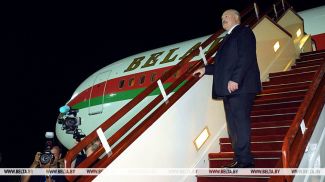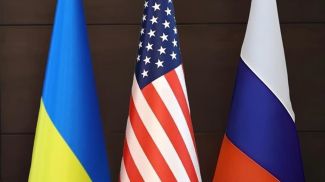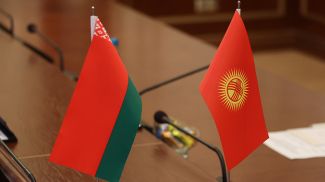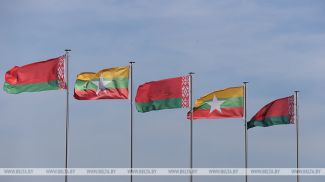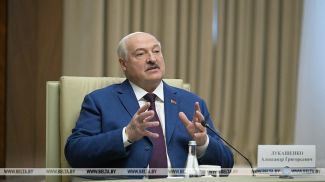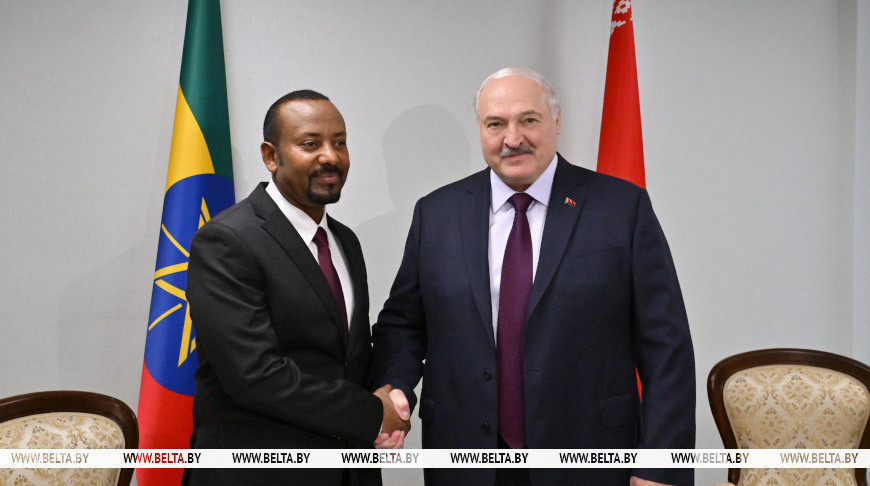
Belarusian President Aleksandr Lukashenko met with Ethiopian Prime Minister Abiy Ahmed Ali on 25 September. The two countries have been cooperating for years, but there is still room to expand and deepen this collaboration. Moreover, the economies of Belarus and Ethiopia are capable of doing so, as the Belarusian leader made unequivocally clear. Traditionally, no topics are off-limits for states willing to engage with Belarus as equals - on a mutually beneficial and respectful basis.
Africa's colonial past (although Ethiopia is one of the countries that was never a colony) inevitably leaves an imprint on the perception of Europeans. Africans well remember how Belgium, France, Britain, Portugal, and other “progressive” European countries plundered the continent for centuries and treated the local population as slaves. Therefore, the trust that many African countries have in Belarus (a country in the very heart of Europe) is truly invaluable.
In this article, we will try to understand what Belarus and Ethiopia find interesting in each other and determine the potential avenues of our cooperation.
It is noteworthy that the conversation between Aleksandr Lukashenko and Abiy Ahmed Ali took place on the sidelines of the Global Atomic Forum in Moscow. The event was timed to coincide with a significant anniversary - the 80th anniversary of Russia's atomic industry. During his speech at the roundtable, the Belarusian leader rightly noted that in difficult times, Russia opens up its most secretive sector and is willing to share its expertise in the field of peaceful nuclear energy.
We are ready to share all of this with other countries, including those in Africa. On this continent, Belarus has long been perceived as a reliable partner. Much of the success of Belarusian policy in Africa (aside from the excellent price-to-quality ratio of our products) lies in our integrity: if we promise to do something, we will undoubtedly deliver. We do not patronize Africans, dictating them how they should conduct their politics, who to befriend, or who to sanction. This is precisely how we differ from the West.
Now, let's turn directly to cooperation with Ethiopia.
Why Belarus views Ethiopia as a gateway to Africa
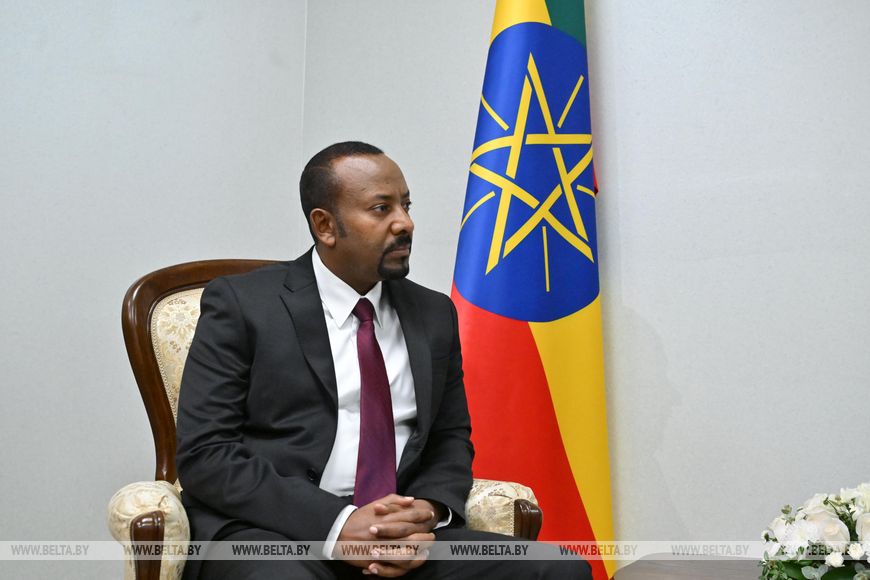
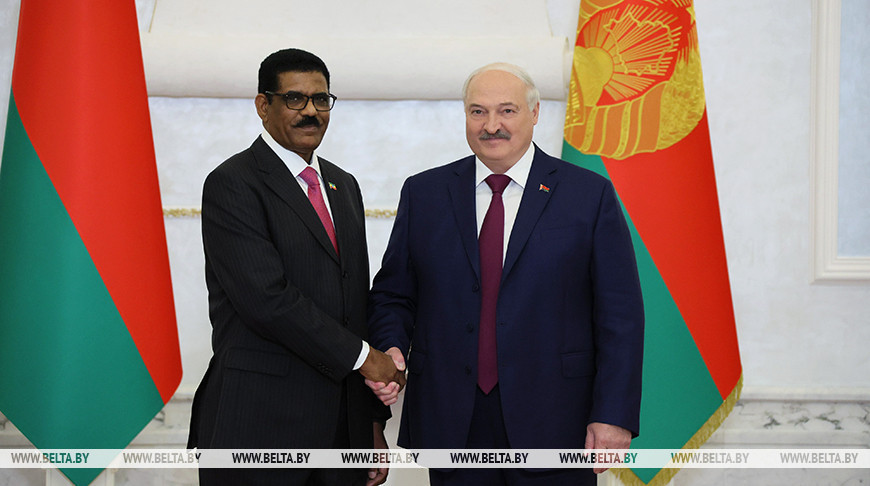
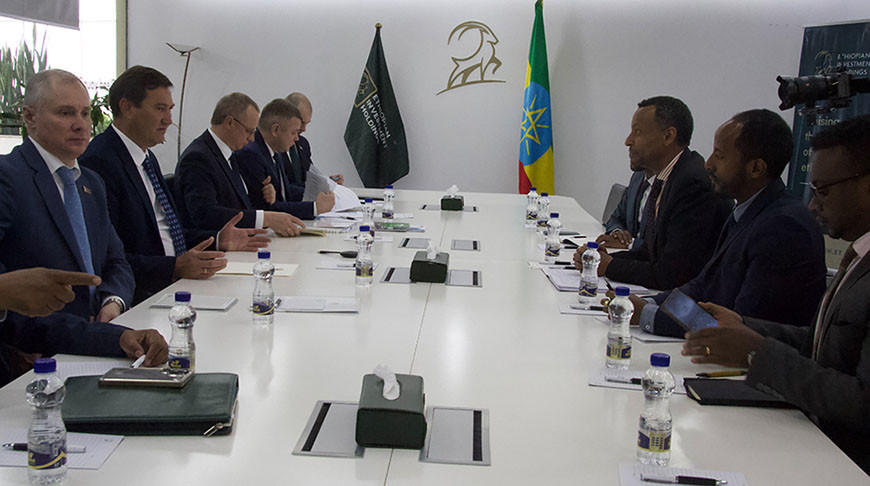

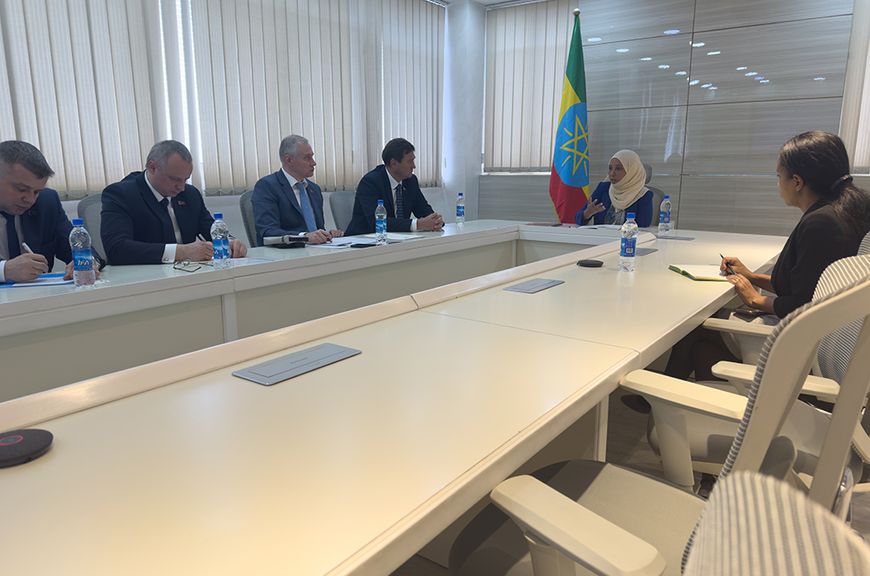

Africa's colonial past (although Ethiopia is one of the countries that was never a colony) inevitably leaves an imprint on the perception of Europeans. Africans well remember how Belgium, France, Britain, Portugal, and other “progressive” European countries plundered the continent for centuries and treated the local population as slaves. Therefore, the trust that many African countries have in Belarus (a country in the very heart of Europe) is truly invaluable.
In this article, we will try to understand what Belarus and Ethiopia find interesting in each other and determine the potential avenues of our cooperation.
It is noteworthy that the conversation between Aleksandr Lukashenko and Abiy Ahmed Ali took place on the sidelines of the Global Atomic Forum in Moscow. The event was timed to coincide with a significant anniversary - the 80th anniversary of Russia's atomic industry. During his speech at the roundtable, the Belarusian leader rightly noted that in difficult times, Russia opens up its most secretive sector and is willing to share its expertise in the field of peaceful nuclear energy.
Here, it is quite appropriate to draw a parallel with Belarus. Our country may not possess such extensive experience in nuclear energy, but there are other areas where we have excelled and achieved global leadership. One need not look far for examples: the world's largest dump truck was produced by the Zhodino-based BelAZ plant. Belarusian buses and tractors, food products, and light industrial goods are highly valued in many countries...
We are ready to share all of this with other countries, including those in Africa. On this continent, Belarus has long been perceived as a reliable partner. Much of the success of Belarusian policy in Africa (aside from the excellent price-to-quality ratio of our products) lies in our integrity: if we promise to do something, we will undoubtedly deliver. We do not patronize Africans, dictating them how they should conduct their politics, who to befriend, or who to sanction. This is precisely how we differ from the West.
Now, let's turn directly to cooperation with Ethiopia.
Why Belarus views Ethiopia as a gateway to Africa
The previous meeting between Aleksandr Lukashenko and Abiy Ahmed Ali took place in Kazan as it hosted the 2024 BRICS Summit. During their conversation, the president told the prime minister that Belarus sees Ethiopia as a gateway to Africa. Ethiopia’s geopolitical position indeed makes it uniquely suited for this role.
Ethiopia is the second most populous country on the African continent and the tenth largest by area. Addis Ababa, the capital of Ethiopia, is often referred to as the capital of all Africa. The African Union is headquartered here. This organization includes 55 member states and is considered the successor to another influential body - the Organization of African Unity, which was also based in Addis Ababa.
However, Ethiopia can boast more than just its international prestige. The country possesses a strategic geographical location, making it a major transportation hub for air travel between African nations. Therefore, the statement that Belarus views Ethiopia as a gateway to Africa has a very logical foundation.
What Belarus can offer Ethiopia
During the meeting with the prime minister of Ethiopia, the Belarusian president made it clear that the scope of cooperation could be very broad ranging from agriculture to the military ties.
“In terms of trade and economic relations, I want to publicly state that no topic is off-limits for us: we can cooperate in all sectors, including agriculture, food production, the establishment of joint ventures in Ethiopia, and military-technical cooperation. We’re ready to work with you across all areas where we have expertise.”

Indeed, just recently the head of state received the credentials from foreign ambassadors. Among them was Ambassador of Ethiopia, Genet Teshome Jirru. Following the ceremony, the ambassador spoke with Belarusian journalists and stated that Ethiopia views cooperation with Belarus in modernizing its agricultural sector as one of the most important areas for future collaboration. A separate topic is the training of specialists from Ethiopia in Belarusian universities, primarily agricultural ones.

Looking at the example of another African country, Zimbabwe, we can see that Belarus has already achieved tangible results in this area. This refers to the joint program for the mechanization of Zimbabwe's agriculture, which Aleksandr Lukashenko called a true model of honest, open, and productive cooperation.
"Thanks to this program, wheat harvests in Zimbabwe have already more than tripled. Since 2022, Zimbabwe has fully met its domestic wheat needs and has begun exporting surplus to neighboring countries (Mozambique, Botswana),” the president noted.
Ethiopia has additional interests in cooperating with Belarus. These were highlighted by Ethiopia's Minister of Foreign Affairs Gedion Timotheos during his meeting with the Belarusian president in late July. He stated that the Ethiopian side is interested in collaborative efforts in the textile industry, mining, high-tech sectors, and other areas.
The potential scope for cooperation appears very broad. The key is to clearly outline the prospects and define what Belarus and Ethiopia aim to achieve. Aleksandr Lukashenko proposed developing a plan, what is commonly referred to as a roadmap for Belarus-Ethiopia cooperation by the end of this year.
"It will specify not only the avenues but also concrete targets we must achieve, ranging from total trade volume to the supplies of our equipment and machinery. And conversely, supplies from Ethiopia to Belarus,” the president said.
What Ethiopia can offer Belarus?
As mentioned above, Belarus views Ethiopia as a gateway to Africa, providing access to new markets. However, with a population exceeding 130 million, the Ethiopian market itself also requires Belarusian products, especially considering its economic expansion. The country is looking beyond simply purchasing MTZ and MAZ equipment to exploring joint manufacturing ventures.
In April, Belarusian Minister of Foreign Affairs Maxim Ryzhenkov paid an official visit to Ethiopia. During the visit, the Belarusian delegation held a series of negotiations not only with key representatives of the Ethiopian government but also with business representatives. In addition to economic matters, humanitarian cooperation was also discussed, with the focus on the promotion of cultural dialogue between the two states.

The visit of the Belarusian foreign minister featured demonstrations of Belarusian quarry, cargo, and construction equipment for Ethiopian partners, alongside talks on complete after-sales service. “The Ethiopian minister requested assistance in developing mineral deposits available in Ethiopia,” the Ministry of Foreign Affairs said at the time. Agreements to expand cooperation were reached in trade, economy, technology, and humanitarian cooperation.



In conclusion, it is worth mentioning the talks between the Belarusian president and the Ethiopian prime minister on the sidelines of the BRICS summit in Kazan. Aleksandr Lukashenko stated then: “I believe in quick steps. The world is transforming rapidly, pushing us to accelerate. We stand ready to deliver on our agreements at the same pace you are ready for.”
The course has been set, the areas of cooperation have been discussed, and an agreement has been reached to develop a roadmap. The next step is to deepen cooperation and implement everything that will be outlined in this roadmap. Our Ethiopian partners can be sure: Belarus will deliver on all its commitments.




